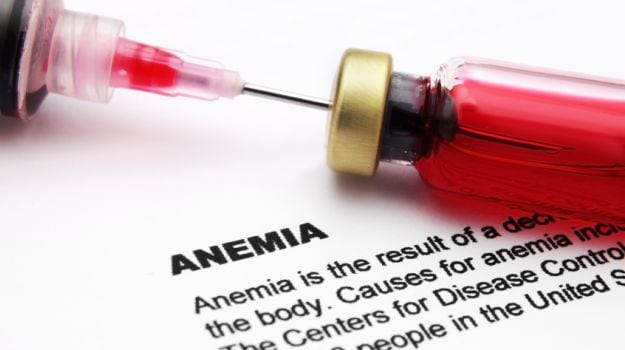Here's a guide on how to live with anaemia. What foods to eat, what foods to avoid & how to exercise.

Consumption of vitamin-rich foods has been proven to help absorb iron in the body
Iron deficiency is more common than you may think. Iron deficiency is caused by a lack of iron in the body. If you don't have enough iron in your body, your body might not make enough hemoglobin in rthe ed blood cells that allow them to carry oxygen. This might cause you to feel shortness of breath, tiredness and lethargy. Here are some tips on how you can avoid or combat iron deficiency in the body:
Eat iron-rich foods: This goes without saying but to increase iron in your body you must consume foods that are rich in iron. Food acts as a fuel for our body and we must provide it with the nutrients it needs. Here are some iron-rich foods you can add to your diet:
- Spinach and other left green vegetables
- Kidney beans
- Peas
- Poultry such as chicken
- Pork
- Red meat
- Fish and other seafood
- Dried fruits
- Dark chocolate
- Lentils
- Chickpeas
Be mindful of how you exercise: Iron can often deplete from the body through sweating. High-intensity workouts can cause your iron levels to decrease. If you are someone who works out often, the best solution is to take iron supplements. Here are a few things to keep in mind while exercising:
- Talk to your doctor: Based on the severity and treatment of your iron deficiency, your doctor can suggest what is the best workout regime and pattern for you.
- Take breaks: The key to a safe workout session as an anaemic is to take necessary breaks. As iron deficiency can also cause shortness of breath, feel free to perform breathing between intervals.
- Take it slow: High-intensity workouts might not be the best workout regime for you. Fast-paced workouts might decrease oxygen in the body and make you feel tired and lethargic even altering working out. Exercising regimes such as yoga, and tai chi, might be better for you.
Avoid phytate: Phytate also known as phytic acid is often found in plant seeds. These might decrease your body's ability to absorb iron from iron-rich foods. In case you suffer from anaemia, it is important to carefully read the nutritional content of the foods you consume. Some of the phytate-rich foods include:
- Grains
- Soy
- Legumes
- Sesame seeds
- Sunflower seeds
Another way to reduce the capability of these foods of reducing iron absorption is to cook, bake, sprout, or ferment these foods. Furthermore, incorporating absorption enhancers such as garlic and onions might also help.
Consume foods rich in vitamins A and C: Consumption of vitamin-rich foods has been proven to help absorb iron in the body. Vitamin A is essential for maintaining good vision, bone development, and a strong immune system. Some of the high-vitamin foods are:
- Oranges
- Lemons
- Guavas
- Melons
- Bell peppers
- Strawberries
- Leafy green vegetables
- Broccoli
- Papaya
- Liver meats
- Salmon
Besides phytates, Polyphenols and calcium might also reduce the absorption of iron in the body. To convert that, we advise you to be mindful while consuming foods that contain these elements and also incorporate iron absorption boosters in your diet.
Disclaimer: This content including advice provides generic information only. It is in no way a substitute for qualified medical opinion. Always consult a specialist or your own doctor for more information. NDTV does not claim responsibility for this information.
DoctorNDTV is the one stop site for all your health needs providing the most credible health information, health news and tips with expert advice on healthy living, diet plans, informative videos etc. You can get the most relevant and accurate info you need about health problems like diabetes, cancer, pregnancy, HIV and AIDS, weight loss and many other lifestyle diseases. We have a panel of over 350 experts who help us develop content by giving their valuable inputs and bringing to us the latest in the world of healthcare.














